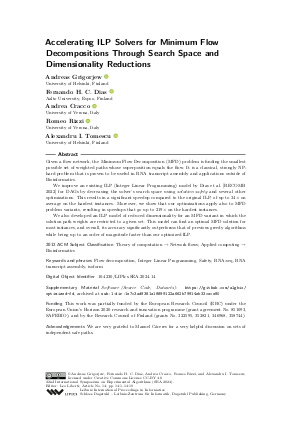LIPIcs.SEA.2024.14.pdf
- Filesize: 1.24 MB
- 19 pages

 Creative Commons Attribution 4.0 International license
Creative Commons Attribution 4.0 International license
























Feedback for Dagstuhl Publishing